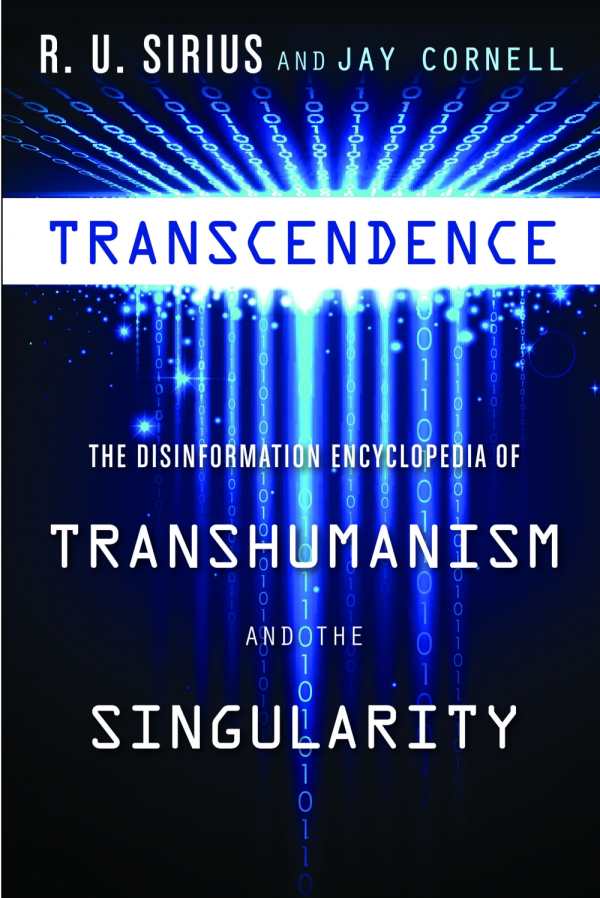
Transcendence
The Disinformation Encyclopedia of Transhumanism and the Singularity
The human-machine interface is coming, and this book takes us on a wild tour of our possible future.
The term is “techno-optimism,” and Transcendence has it in abundance. According to the authors’ view, humans will soon build machines that exceed them in intelligence (the moment this happens is called the “singularity”), and they will find ways to elevate themselves physically and mentally through technological means (known as “transhumanism”). R.U. Sirius and Jay Cornell’s book opens a window on a wild child of technological advancement that will fascinate anyone unfamiliar with it.
Transcendence touches upon many aspects of modern life, particularly health, that will shift when humans and machines integrate with one another. Designer babies will remove the concept of suffering from human existence, for example. But of the points the book makes, few are actually argued. Rare dissenting viewpoints exist in this book, but they tend to be drowned out by torrents of expert agreement and positivism. On its own, this bias isn’t a fatal flaw, but without an index or bibliography, the value of Transcendence as a reference book, much less an “encyclopedia,” is limited. It even makes a few statements, typified in a bit about resveratrol (a compound found in red wine and chocolate that some believe contain health benefits), in the chapter titled “Nutraceuticals,” that make it appear as if there’s no controversy.
Structured as a series of stylistically flashy short articles, this book reads much like a website. Indeed, much of its content was derived from work originally posted and published online. Sound bites from experts populate the ends of chapters—all clear, concise, and conceptual. In fact, the book generally avoids technical jargon, defining terms like “neurotechnology” and “MOOC” in ways that any newcomer could appreciate, regardless of educational level or background.
Though this style does make Transcendence a very easy read, it also gives it an almost advertisement-like finish. Transhuman activists might find it a little facile and disorganized. Curious others who are not specifically looking for an introduction might find the book carnival-like and of limited relevance to the current state of research into human-machine interface.
All that said, it’s very hard not to like Transcendence. It is friendly, fun, and extremely interesting, even hard to put down. Reading it is a little like surfing through a transhumanist version of Cracked.com or Fark.com, except without the hordes of howling comments. This makes the book a relaxing, feel-good read for the technologically minded.
There’s no need to convert to the transhuman way to get something out of Transcendence; creatives, circuitheads, and fans of science fiction will find plenty here to stimulate the mind.
Reviewed by
Anna Call
Disclosure: This article is not an endorsement, but a review. The publisher of this book provided free copies of the book to have their book reviewed by a professional reviewer. No fee was paid by the publisher for this review. Foreword Reviews only recommends books that we love. Foreword Magazine, Inc. is disclosing this in accordance with the Federal Trade Commission’s 16 CFR, Part 255.
